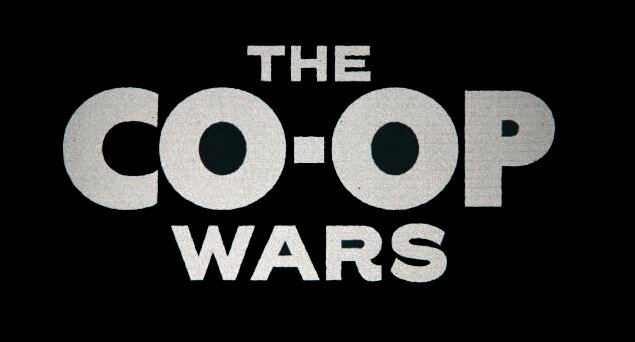We are in the midst of a new wave of co-op startups. Across the country, people are organizing themselves to meet their needs, perhaps most frequently for employment and for food. In Massachusetts, a 7-year old food co-op sells ginger wine and sauerkraut produced by two different businesses that converted to worker co-ops two years ago. (River Valley Co-op, Artisan Beverage Cooperative, and Real Pickles.) All across the country, people are starting co-ops selling everything from paletas like those pictured above to solar installation services.
Like the Twin Cities food co-ops in the ‘70s, worker co-ops today network with each other to build strength and share resources. We talked with co-op champion Melissa Hoover to learn more about worker co-op networks and the nature of the present co-op wave. After building the US Federation of Worker Cooperatives (usually abbreviated as “the Federation”) for nearly ten years, Hoover recently took the reins at the Federation’s new partner, the Democracy at Work Institute (DAWI).
When the market isn’t addressing people’s needs, sometimes they start co-ops to meet those needs. In the 1970s, the food co-ops met people’s needs for cheap, whole foods. Today, what spurs start-up worker co-ops is need for employment. Hoover says the ‘70s food co-ops were started by people who were “trying to exit the economy,” while many people starting co-ops today are “trying to get INTO the economy.” They’ve been shut out of it for various reasons, especially including immigration status.
And they’re starting these businesses in a very challenging economic climate. Hoover identifies the US economy’s shift away from manufacturing and toward a service economy as a destabilizing force. Many of the new worker co-ops are service-based businesses, such as housecleaning and home health care. Hoover says that in order for a small service co-op to succeed in a legal and economic environment that favors big businesses and marginalizes labor, “you have to really know what you’re doing in business these days.”
These entrepreneurs are not working with the advantages that favored some of the 1970s start-ups, such as “residual stability of the post-war boom,” which showed in a still-mixed economy, despite the recession. “There was more room to mess up and play around.” According to Hoover, “This is the first generation to have less opportunity than their parents.” And since many of these cooperators are immigrants, they face extra challenges related to legal status, language, and lack of wealth.
But one advantage they do have is the Federation and DAWI. These two organizations work together to provide resources to worker cooperatives, advocate for policy changes that will benefit co-ops, and continue to build the worker co-op movement. Hoover explains that the Federation began with networking and movement-building priorities, and that once they reached a certain capacity, members began asking for more services. Starting DAWI was a way to institutionalize the movement-building work of the Federation. DAWI is developing curriculum and policy for building a stronger worker co-op movement, and the Federation is implementing these tools with its members.
Their work has already borne fruit: New York City recently pledged $1.2 million to fund the development of worker co-ops, and requires the city’s economic development arm to track municipal support of worker co-ops. More cities are considering similar moves, in a break from the common pattern of chasing down big corporations to spur economic development. Hoover says, “Just give us a little bit, and you’ll see a big return.”
Hoover believes “one of the best things co-ops can do is institutionalize themselves.” Once they have achieved a certain level of success and stability, it benefits everyone if they do something like buy land, start a fund, or an organization. In her words, “Leverage the surplus of doing business into something permanent and institutional.”
The Twin Cities co-ops have seen the positive results of this kind of visionary thinking. For example, Northcountry Cooperative Development Fund began in 1978 when a group of food co-op activists got frustrated with not being able to get business loans for their stores. Today, NCDF has originated over $31 million in cooperative lending. NCDF was also the first fiscal sponsor of the Federation, which was actually born in Minneapolis in 2004, at the first national conference of worker cooperatives. (Our producer, Erik Esse, happens to have been the person hired to organize this conference!)

